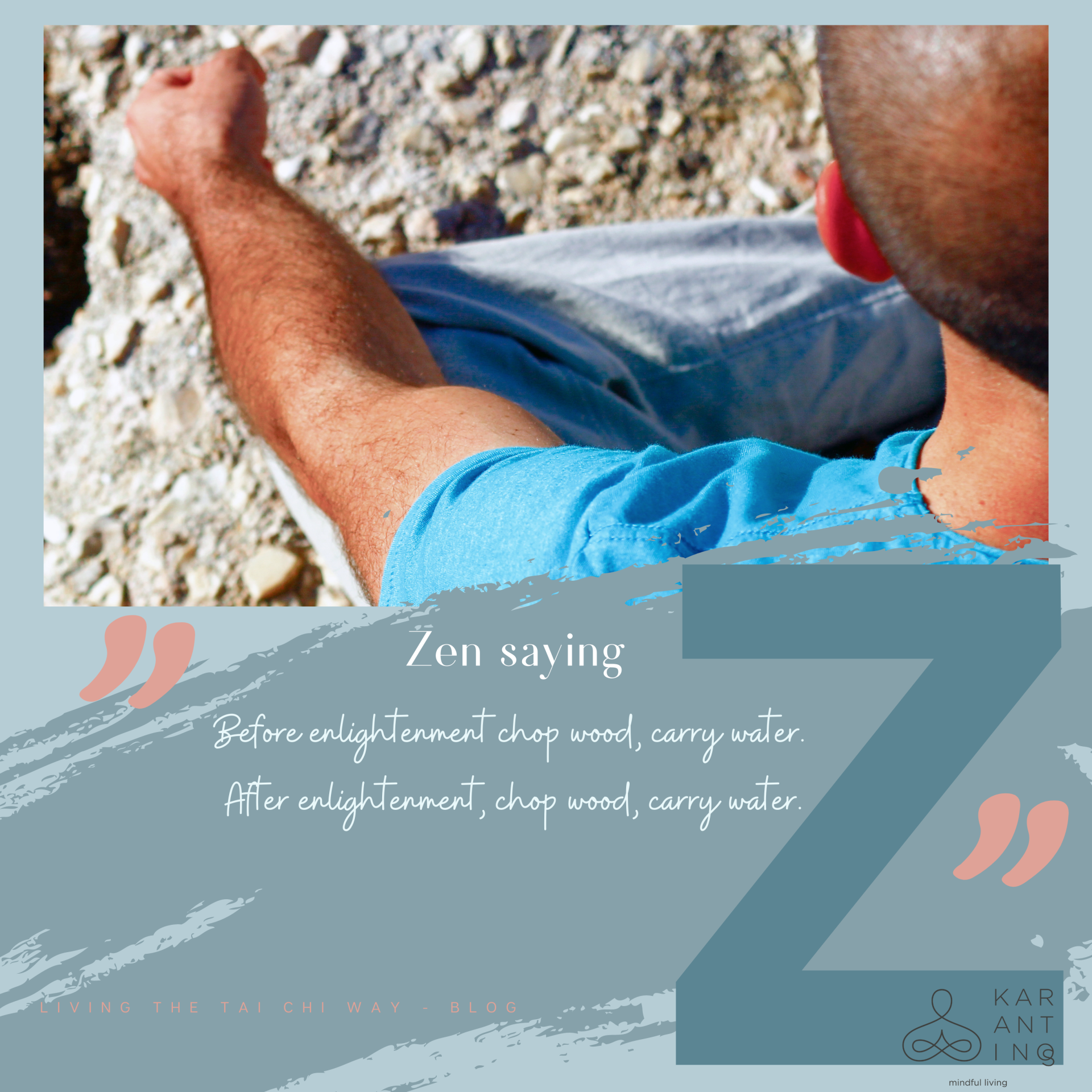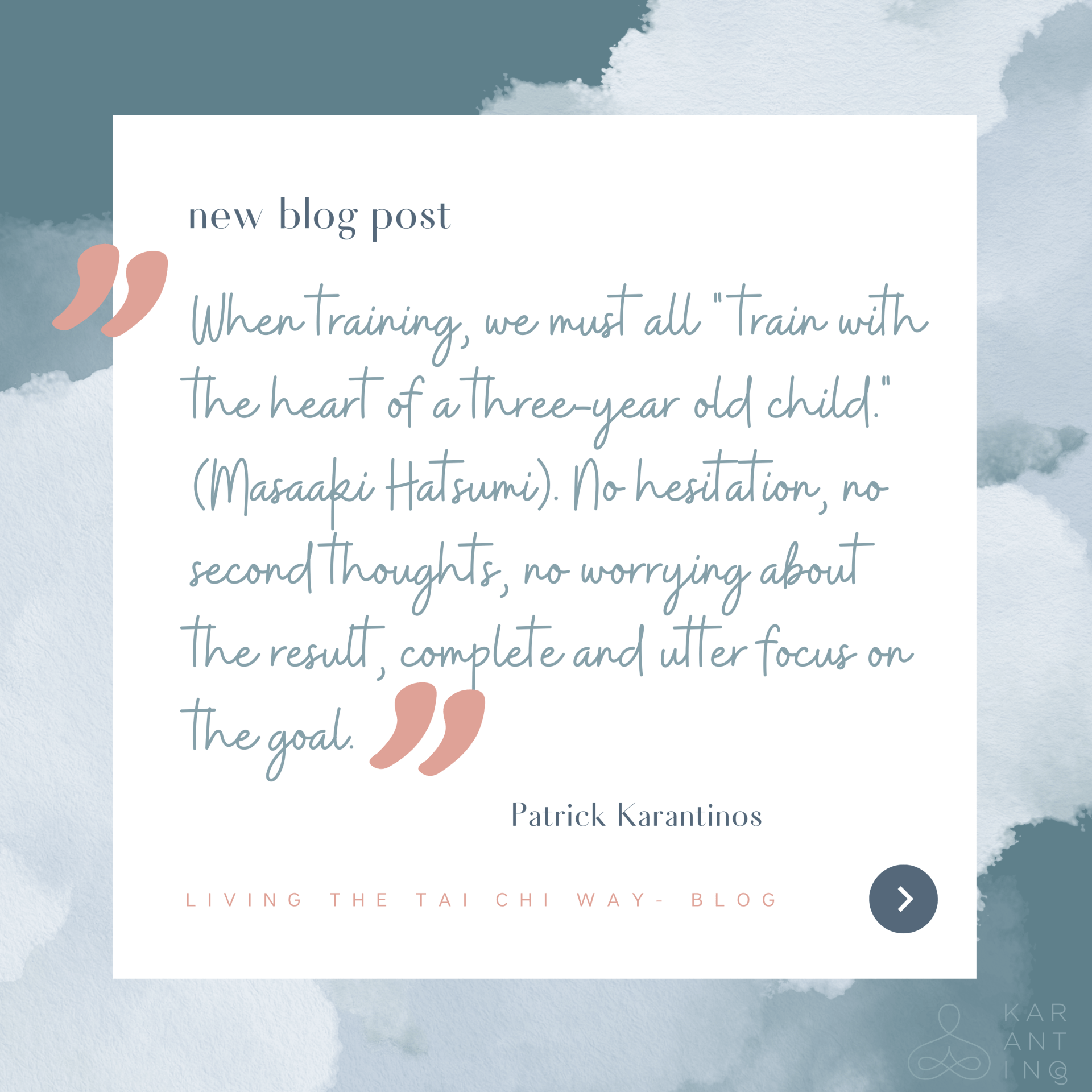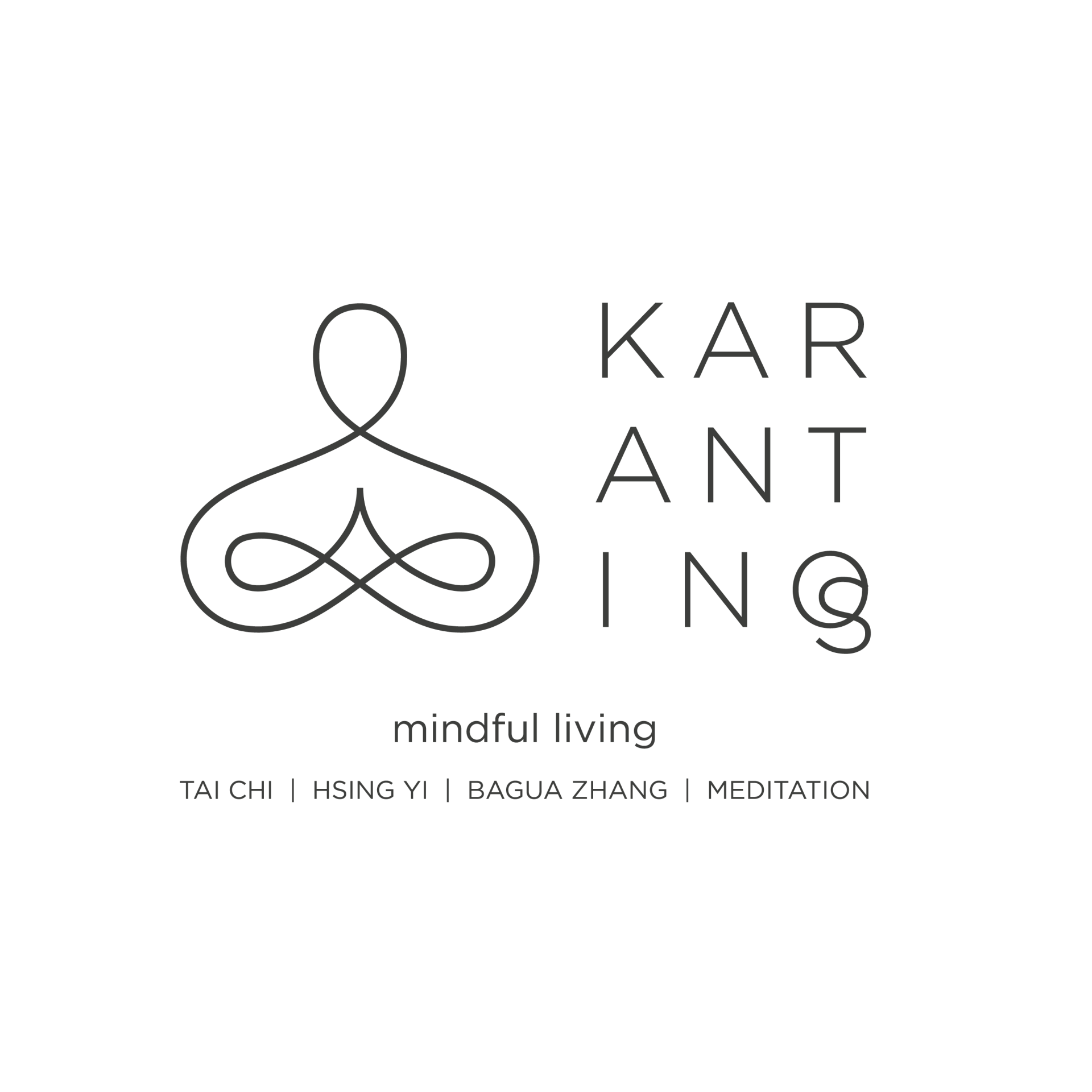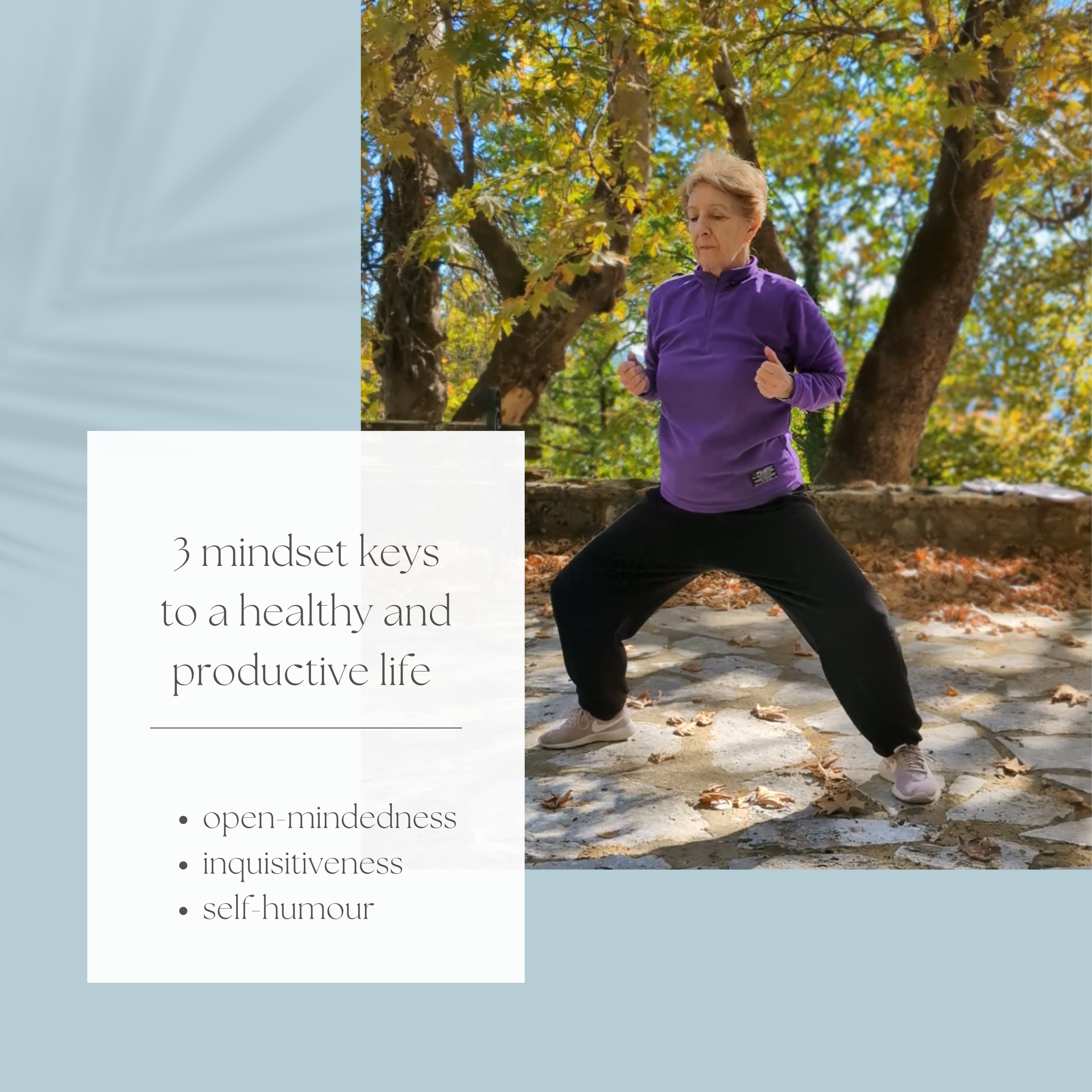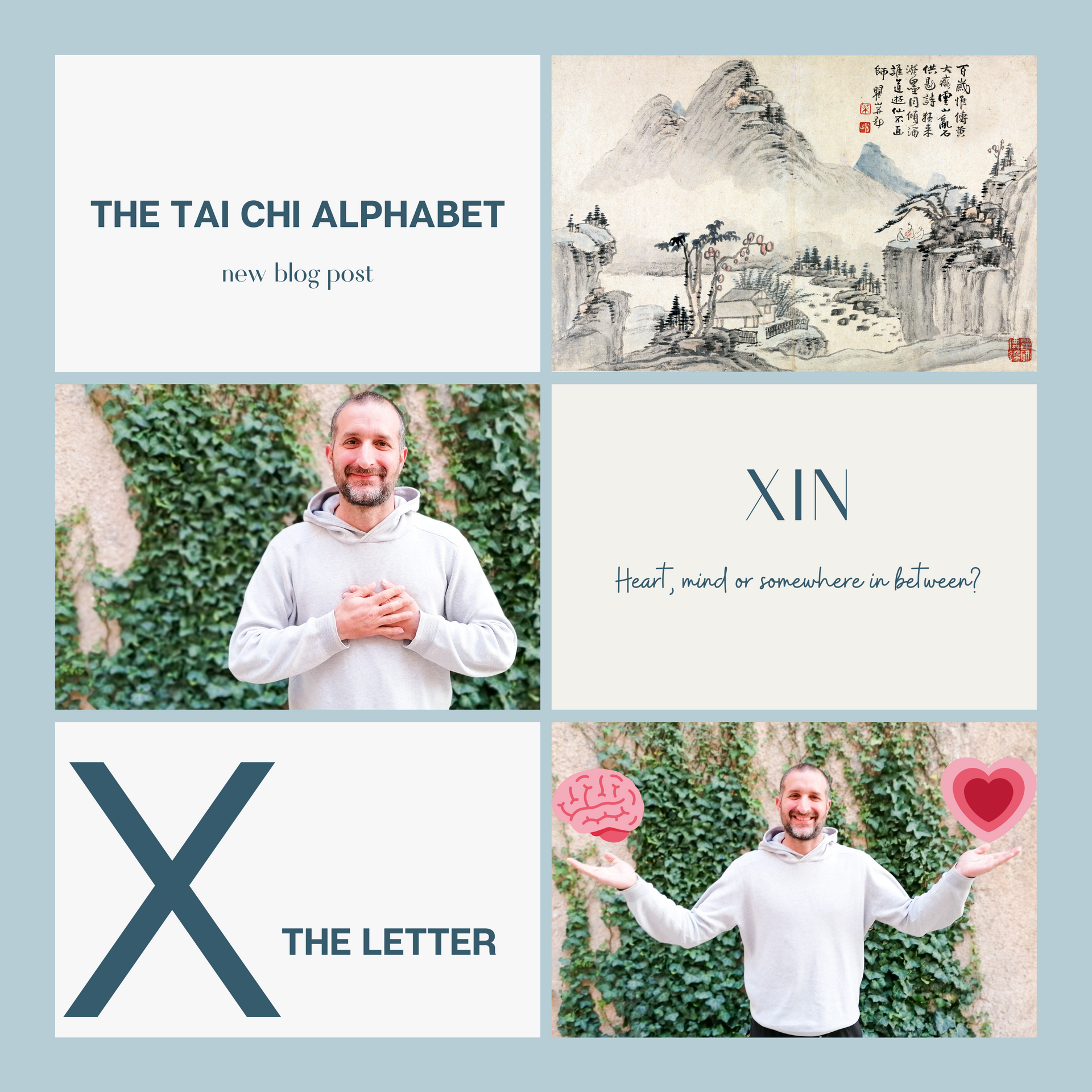Don’t tell me to relax! I am relaxed
___

How many times have I responded like that whenever my teacher has told me to relax...(most of them inside my head as my teacher doesn’t really tolerate being talked back to, being a Chinese old-school martial arts master).
But why is it so important to relax when practising Tai chi? Let’s put aside (but also mention in case you don’t know) the many scientifically proven benefits of relaxation such as lowering blood pressure, slowing down breath and heart rate, improving digestion, increasing blood flow to major muscle groups, controlling blood sugar levels, getting better sleep quality, lessening stress etc., and let’s look at how relaxation works specifically in Taichi practice.
Relaxation will help you first understand what kind of tensions you have created through your habitual movements and stances, like for example, sitting in front of a computer or any other screen, and it will help you relax them and dissolve them. At the same time, your natural way of movement, the innate intelligence of the body which we have from when we were born, requires the body to be relaxed in order to be connected. See for example how kids aged 2 to 3 use their body to their full potential.
Their stance is perfect, and they can generate a lot of power relative to their muscle size. I remember distinctly my three-year old son, who was sitting in his baby chair still high above the ground, pushing a wooden table which was at least twice his body weight. The more you relax and stand and move correctly aligned, this innate ability to move the body will start emerging and you'll be able to move in a natural way. By applying the Taichi principles in stance and movement, you will rediscover your natural way of movement. And that will affect other aspects of your being as well.
Taichi is a meditative art which starts by us looking inside our body first and then at the same time our mental and psychological aspect. This introspection brings to our field of awareness the long held dysfunctional habits, be they physical, mental or psychological patterns such as disruptive thoughts, automatic negative emotional responses, and of course injurious ways of standing, sitting or moving, you know, doing things that we do every day in a wrong way because the body is compensating for various reasons, such as past injuries (both physical and emotional) or a sedentary lifestyle.
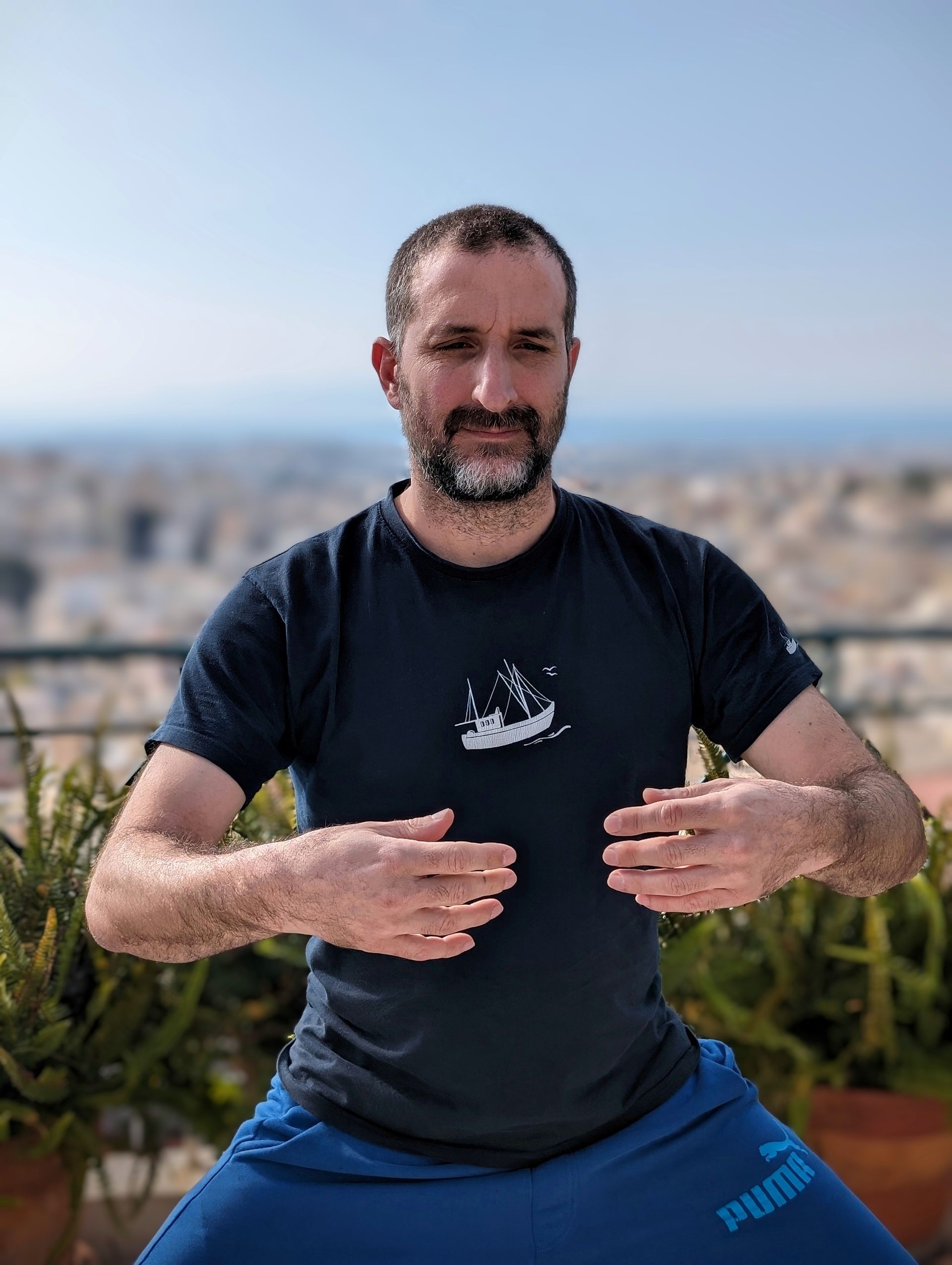
Taichi is an art that requires our full attention on all physical, mental, and emotional aspects of our experience. These three are intertwined as they are, you guessed it, you! Focusing on the physical, practice makes us realize that these patterns in the body, which lead to having other muscles in the body work more or work less, are creating this disharmonious way of movement which lead to the aches and pains we’ve all come to love and hate, that come from continuous use of the body in the wrong way.
Zeroing in on these patterns, releasing them by moving the body in accordance with the Taichi principles takes time as you may understand, depending on how wrong you've been sitting or moving and for how long, so patience is definitely a virtue one cultivates with Taichi. Don’t practice Taichi if you’re looking for a quick fix!
But if you practise correctly, you start seeing results, and then it gradually gets better.
This is why we strive to learn the form and each movement in itself is practiced repetitively for hundreds and thousands of times. This may seem boring and at times it is, but mostly in the beginning. If you do it correctly, following proper instructions and principles, it becomes another experience. Those instructions require you to keep your mind on every aspect of your experience, physical, mental, emotional. So for example you can start with why you find it boring, or stupid, pointless or whatever other adjective you want to put there. What good will that do? Well you’ll be getting a glimpse of one thing that’s holding you back, which is for this example, the concept of being bored. I was bored as a teenager for a while, but then I started training martial arts and became more engaged in what I was doing.
Still I find some repetitive aspects of everyday life boring at times. But then it only takes me a second to remember the bliss of being alive and the finite time we all have in this world to enjoy its wonders, and then I’m no longer bored. Taichi and its practices and principles help you get past that or any other obstacles towards understanding yourself and the world around you, and then another way of experiencing reality opens.
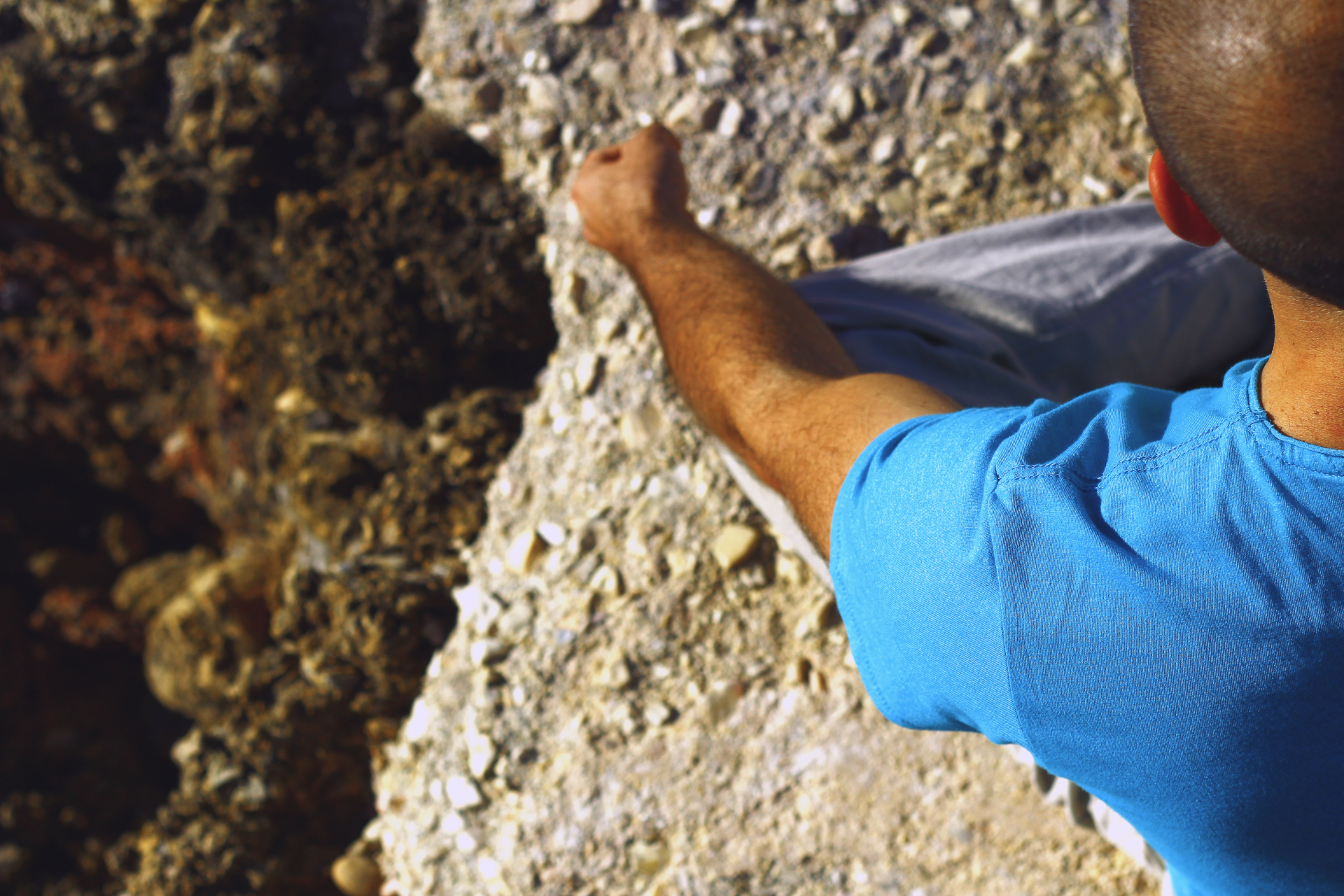
So as you can see, if you start applying these principles, you are already following the way. If not, you’ll power through the repetitions, and you may fall in relaxation by doing the moves but most likely you’ll stop as it will seem pointless. It’s not only about the moves. Taichi practice is a journey that starts from the physical goes to the mental to the emotional, it practises all the three aspects that I understand make us human. And it all starts from relaxing, slowing down and stepping into the now.
